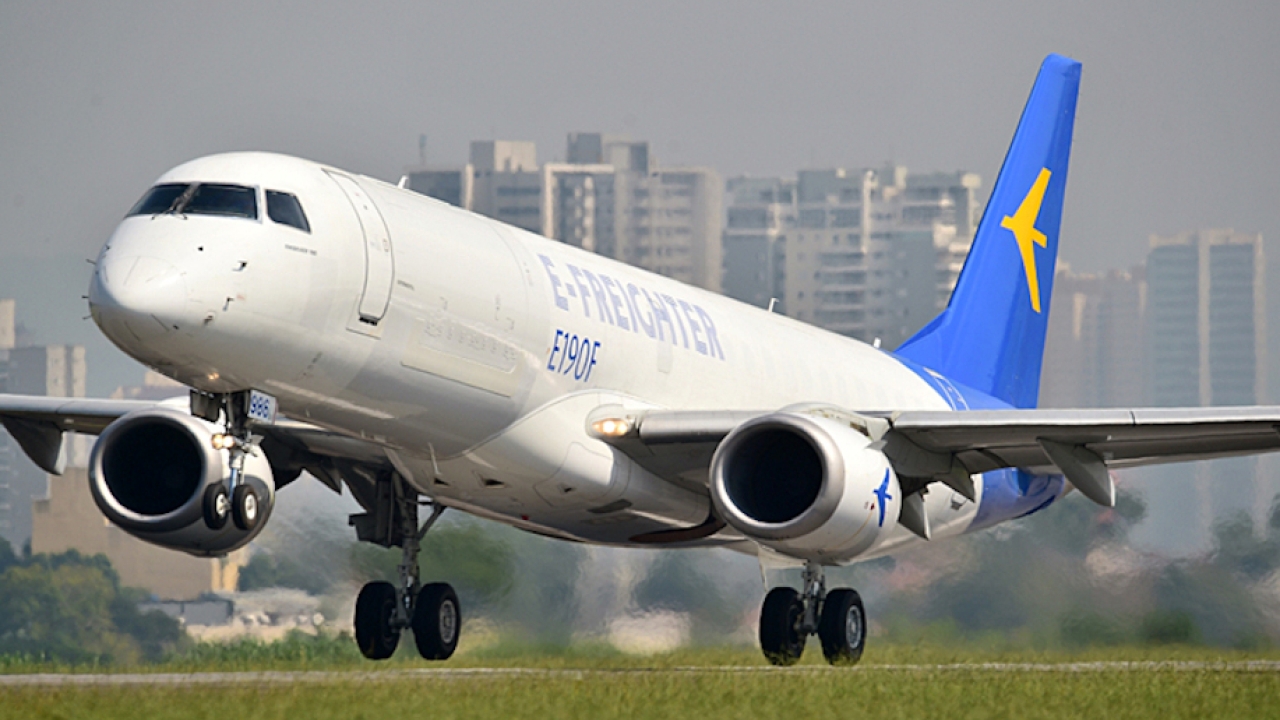Drone star
A Kenyan company sees unmanned aerial vehicles (UAVs), or drones, as the ideal answer to the problem of getting freight – anything from a packet of urgent medicine to a tonne of cargo – to remote locations. Alan Dron reports.

In the US and Europe, internet giants such as Amazon are keen to start using UAVs to deliver small packages to customers. Assuming regulations allowing them to co-exist with airliners and other aircraft can be agreed, getting those packages through will depend on having a precise delivery address.
In Africa, with its relatively undeveloped infrastructure, pinning down such an address could be a problem. But it’s one to which Kenyan freight airline, Astral Aviation, believes it has the answer.
“In Africa, nobody has a physical address, with the exception of a few countries such as South Africa and Kenya,” explained Astral CEO, Sanjeev Gadhia. “We still have the old-fashioned PO Box system [for mail] and having a PO Box is really a privilege for the rich and famous.
“What people don’t realise, however, is that when they switch on their mobile phone that becomes their address.”
That is because most modern smartphones are built around a locator device that connects them to the nearest cell phone mast. And that locator is accurate to a few hundred metres – much less in more modern handsets.
That is vital in a continent where many regions are still not accessible, even by conventional aircraft.
UAVs are still a new phenomenon in Africa and only South Africa and Rwanda currently have rules in place to regulate their use. However, Kenya is about to introduce similar regulations and Astral wants to start operations as soon as possible thereafter. It has set up a new subsidiary, Astral Aerial Solutions, to handle drone operations.
Gadhia said that Astral intends to use different types of UAV with varying carrying capacities and had already identified several potential candidates, although he declined to go into detail.
These could range from the mini-UAVs that have become so popular in recent years and can carry small packages – something that mail order giant Amazon intends to use – to a significantly larger vehicle with the capacity to carry around one tonne. That could consist of humanitarian supplies or heavy components for the oil and gas industries.
In the latter category, it is closely studying one particular European design that it believes could be ideal for its purposes. One other possible option is to use the US-built Kaman K-MAX helicopter, which can be operated in unmanned mode. This proved its ability in Afghanistan by delivering up to 2.7 tonnes of supplies to isolated military outposts at night, under remote control.
Under Astral’s plans, a customer wanting a cargo delivered would contact the airline’s control centre with their GPS coordinates and the controller would file a flight plan for the UAV to that point.
“We would deliver cargo to an airport or droneport and inform the customer that we would be taking off and landing at a certain time and agree a charge,” said Gadhia.
“On arriving at the destination there would be someone from the client at the designated spot. There would be cameras on the drone so we would know exactly where we were landing. Once we have off-loaded the cargo, we would return to base.”
Qualified drone pilots, approved by the Kenyan civil aviation regulator, would be used, he added.
Astral has set aside a budget of $500,000 to set up its UAV service. This may seem modest but smaller drones are not expensive “I could get five drones for under $200,000 and the cost of operating them is a fraction of operating a fixed-wing aircraft – perhaps 10%.
I think the low-cost advantage is what will sell drones more than anything else,” said Gadhia
Astral plans to construct a drone port. Like the UAVs it will initially use, this would not be expensive. “The famous British architect, Sir Norman Foster, has designed a very fancy, Star Trek-like facility. I want to meet up with him and tell him he’s gone bonkers, because you really don’t need a sophisticated drone port, just somewhere to store them overnight and charge their batteries.”
Gadhia admitted there was still scepticism over the cargo drone concept, but Astral was already receiving foreign visitors, keen to see how it was preparing for the new venture.
“Especially in Africa, you can see it becoming a very important part of air cargo; you would just have to get [the consignment] to an airport.”
A particular use for smaller drones could be getting medical supplies quickly to remote locations: “One reason Ebola spread so quickly was because the authorities weren’t able to get the vaccines to the infected areas in time,” said Gadhia.
Everyday medical problems would also benefit from such a service: “Typically, it could be where somebody in a village might need medicine very quickly. That medicine might not be in the village but at a district hospital. Getting medicine to the village might take two days by surface transport, by which time the person could be dead. That’s very typical in Africa – there are a lot of deaths because medicine didn’t reach people in time.”
Stay up to date
Subscribe to the free Times Aerospace newsletter and receive the latest content every week. We'll never share your email address.

